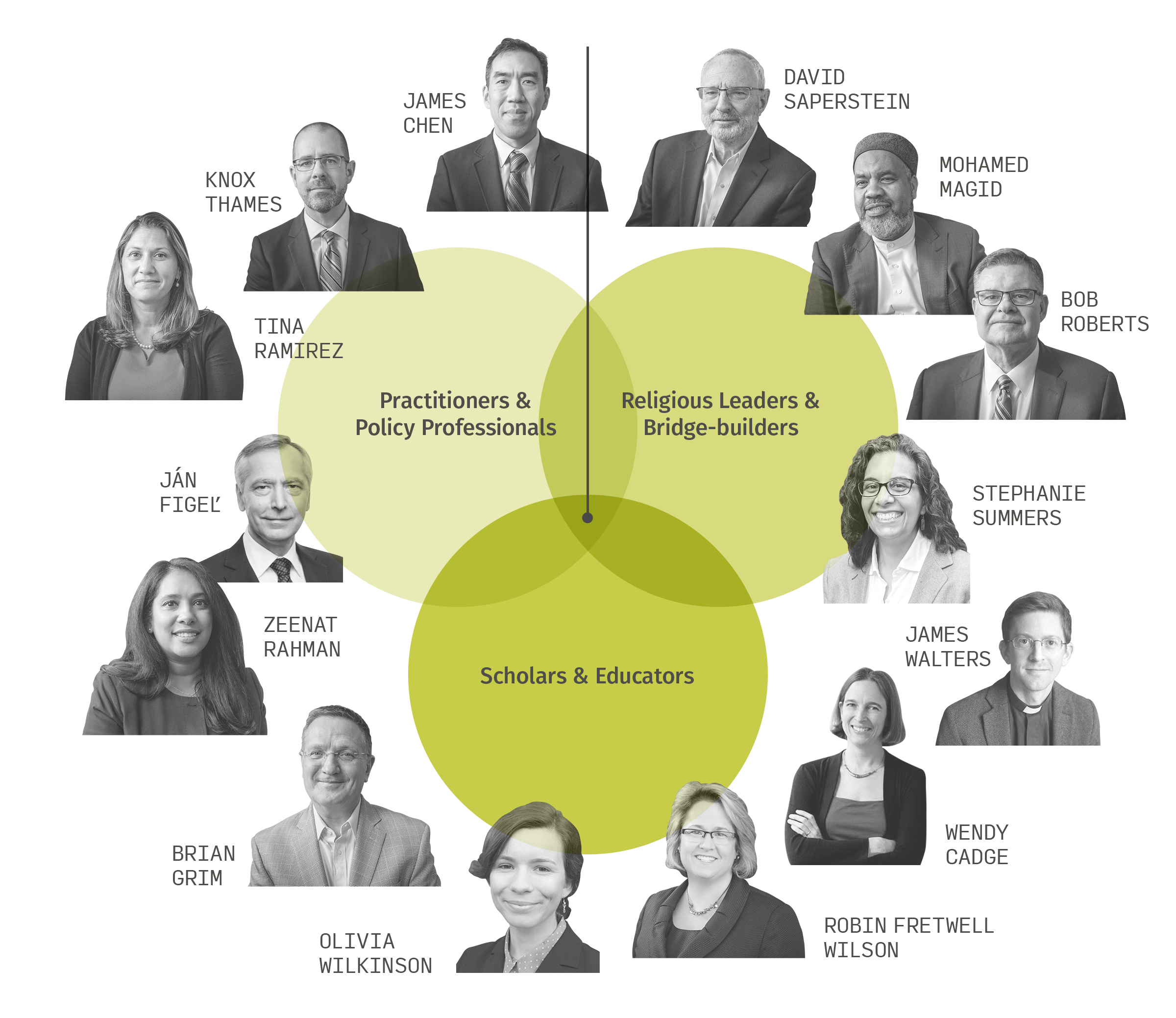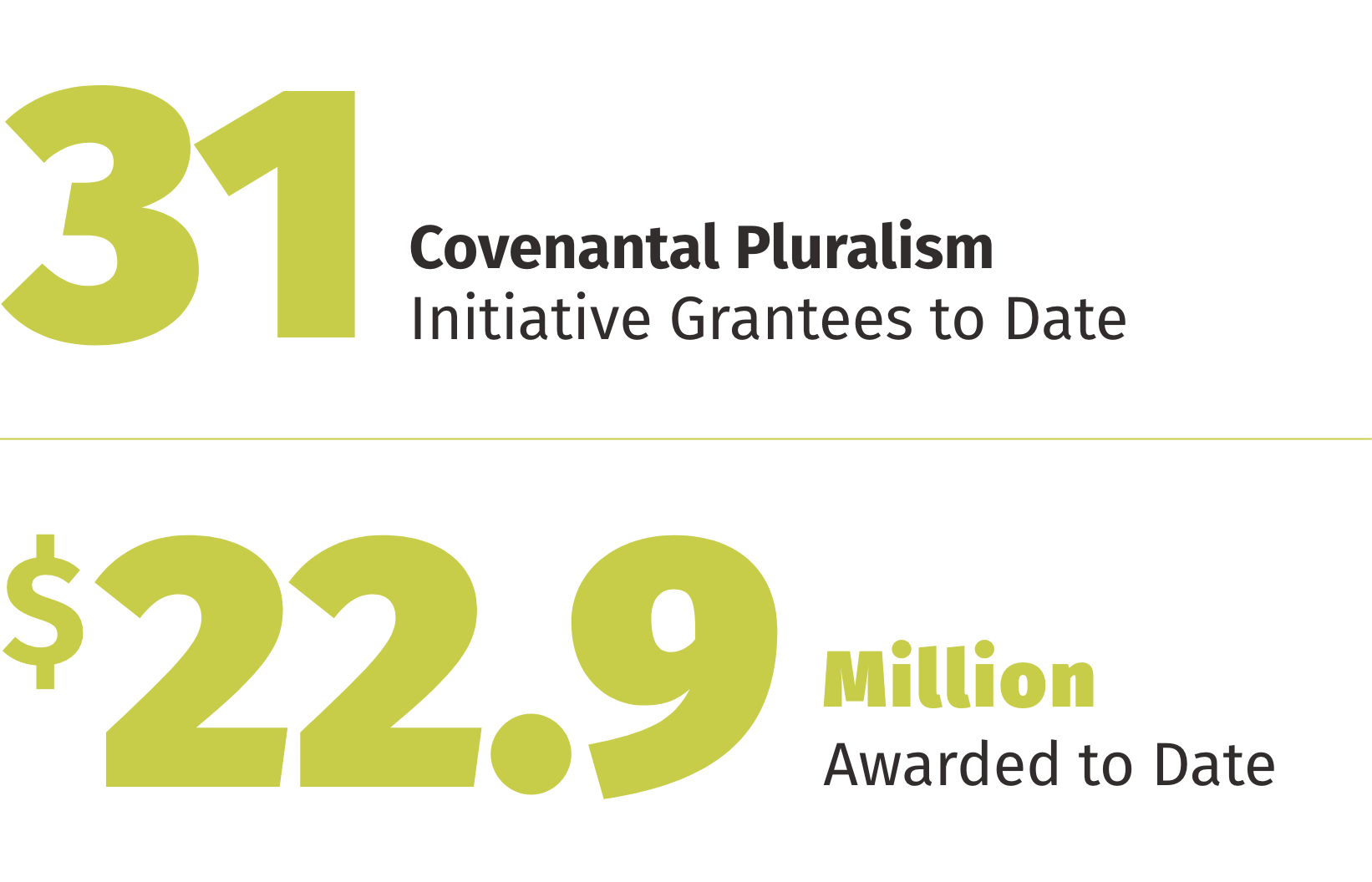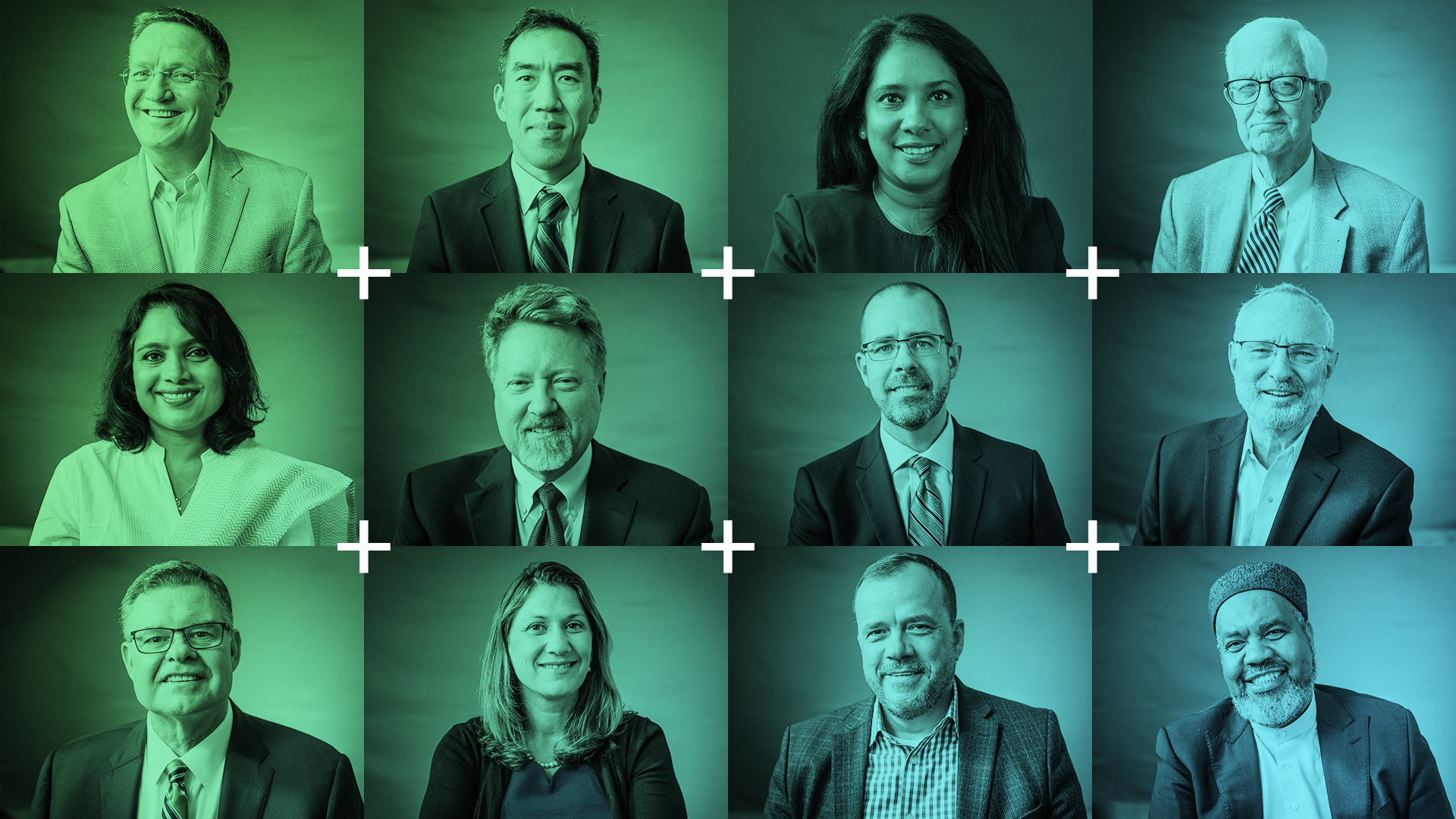What if religions engaged one another across their deepest differences?
Religious tolerance is a great starting point, but it can easily lead to apathy or indifference. We tolerate things we don’t like—things like back pain and toothaches. We tolerate things we want to go away.
Sir John Templeton thought we could do better. In fact, he believed there’s vast, untapped potential to move beyond mere tolerance without ignoring real differences between religions. He proposed a positive, practical, principled pluralism—one we’re calling “covenantal pluralism.”
Tolerance may be a divine virtue, but it could also become a vehicle for apathy. Millions of people are thoroughly tolerant toward diverse religions, but rarely do such people go down in history as creators, benefactors, or leaders of progress. … Should we not desire to have our neighbor share insights and try to convey to us the brilliant light that has transformed his life—the fire in his soul? Why settle for a least-common-denominator type of religion based on tolerance alone? More than tolerance, we need constructive competition. (Possibilities for Over One Hundredfold More Spiritual Information: The Humble Approach in Theology and Science, 122-123.)
Covenantal pluralism imbues the principles of pluralism with the positive values and practicalities of real relationships.
The concept of “covenant” requires both a framework of equal rights and responsibilities as well as a supportive cultural context of respectful engagement, relationship, and reciprocity—even amidst stark differences in theologies, values, and lifestyles. Covenantal pluralism, therefore, entails the responsibility to engage, respect, and protect one another, without necessarily regarding others’ beliefs or behaviors as equally true or right.
Our focus on covenantal pluralism allows us to identify, understand, and promote initiatives that contribute to what Sir John would call “constructive competition”—that is, competition conducted in a loving, friendly spirit under free and fair conditions.
Relativism is a tempting but ultimately ineffective way to encourage real relationships and collaboration between people of different faiths and no faith.
Instead of facing real differences in values and behaviors head-on, relativism waters down the significance of religion, spirituality, tradition, and culture. It encourages people to settle for what Sir John would call “a least-common-denominator type of religion based on tolerance alone.”
Pluralism—in particular, covenantal pluralism—creates a social space large enough and strong enough to sustain competing ideas, values, theologies, and lifestyles by weaving them into the fabric of interpersonal relationships. It encourages people to acknowledge, respect, and engage with their differences instead of ignoring, belittling, or dismissing them.
Covenantal pluralism calls people, not to tolerance, but to real, respectful engagement. Engaging across lines of difference helps us move beyond clichés of diversity and tolerance toward real relationships, collaboration, and understanding.
We’ve identified three enabling conditions to create the right environment for engaged pluralism and constructive competition: freedom of religion and belief, holistic religious literacy, and character virtues.
Far from a partisan talking point, freedom of religion and belief is of global importance for people of all faiths and none. It involves the liberty of conscience to choose, change, share, or reject any belief.
Freedom of religion and belief must guarantee equal treatment of religions and worldviews under the rule of law. It must also ensure the freedom to bring those beliefs into public discussions of the common good. Without the pursuit of global religious freedom, covenantal pluralism remains a privileged theory for those with the requisite protections.
A holistic form of religious literacy is necessary to sustain covenantal pluralism’s call to engagement. Evaluation, negotiation, and communication skills are necessary to understand one’s own belief system and what it says about engaging the other, let alone anyone else’s.
It is this commitment to learning and understanding that allows one to consider the nature of specific cross-cultural, multi-faith contexts. Religious literacy is the foundation for the collaboration of neighbors with different beliefs and how these initiatives ultimately serve society at large.
The discussion of deep differences must occur in a manner that is mutually respectful of every person’s inherent dignity. Character virtues, such as humility, empathy, patience, and courage, enable and encourage these discussions.
Dialogue between people of different faiths and no faith at all is necessary to improve our methods of inquiry into the existence and nature of spiritual realities.
Religion is one of humanity’s oldest tools for seeking to understand. Far from its reputation as outdated or unchanging, religion is fertile ground for innovation. When people of different backgrounds pursue and share spiritual information, the quality of our understanding grows. Take a look at our grantee stories to get an idea of just how much religion and faith can fuel new discoveries.
With covenantal pluralism, more people can experience the benefits of religion, including increases in collective peace, harmony, happiness, productivity, and health. Studies show that religion correlates with better mental health outcomes, which in turn can result in better physical health due to greater coping skills and quality of life. The community aspect of many faiths can satisfy our social needs and prevent the negative effects of loneliness and isolation.
Moving beyond tolerance to engaged religious pluralism fuels our creative expression and drives greater spiritual growth and innovation. Whether exploring music as a bridge to spirituality, exploring the moral impact of movies, or studying the intersection of faith, ethics, and medicine, the bonds of covenantal pluralism give us creative license to ask questions we may have never considered, enriching our understanding.
We’re inviting religious leaders and bridge-builders, scholars and educators, and practitioners and policymakers from across the globe to help guide our efforts in covenantal pluralism. These passionate professionals are doing the work and making an impact while regularly interacting and sharing resources.



In July 2021, the cause of international religious freedom strengthened significantly as more than 1,000 leaders from 30 diverse belief traditions gathered with government leaders from throughout the world to participate in the first-ever International Religious Freedom Summit.
Full article: A Case for Cross-Cultural Religious Literacy
The Routledge Handbook of Religious Literacy, Pluralism, and Global Engagement